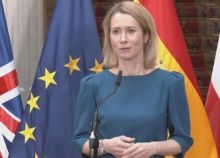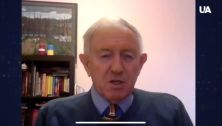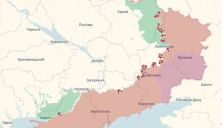The position of Hungarian Prime Minister Viktor Orban against Ukraine’s membership in the European Union is formed by the sum of three factors – historical, economic and political. Vyacheslav Potapenko, head of the Center for Internal Political Research at the National Institute for Strategic Studies, spoke about this on the FREEDOM TV channel.
“Let’s start with the history. As a result of the First World War, when the countries of Central Europe were formed – Poland, Czechoslovakia, Hungary, and so on, the state of Hungary was created on a small territory. More than half of the Hungarian ethnic population ended up abroad as they fought on the losing side of World War I. During World War II, the Hungarians, together with Germany, tried to restore and increase their territory. In particular, Transcarpathian Ukraine was annexed during the division of Czechoslovakia back in 1938. The Treaty of Trianon and this historical legacy are still very important factors in the domestic politics of Hungary. That is, the Hungarian government constantly insists that they want to return, annex or maximally assist Hungarians living abroad, in particular in Romania, Ukraine, Serbia and other neighboring countries,” he explained.
The second factor is economic.
“Of course, Orban, taking a special position concerning the start of negotiations on Ukraine’s membership in the EU, gets a certain opportunity to put pressure on the European Union and, roughly speaking, extort money from them,” says Potapenko.
And the third feature, according to him, is that Orban is a populist politician.
“He is trying to ensure his popularity, in particular, by low prices for gas for heating and domestic needs. And he does this at the expense of fairly cheap Russian gas. In this regard, he is one way or another forced to lobby for the Russian position in the European Union. Orban is lobbying for Putin’s agenda in Europe, which gives him strong discounts on gas, and this ensures him guaranteed re-election for the next term,” summed up the head of the Center for Domestic Political Studies at the National Institute for Strategic Studies.
It should be noted that the Verkhovna Rada called on the European Council to decide to begin negotiations with Ukraine on accession to the European Union. 292 people’s deputies voted for this. In particular, parliamentarians called for supporting Ukraine’s aspirations to join the European Union. To do this, a decision must be made on the relevant negotiations during the European Council meeting on December 15.
Read also: Bypassing Blockade: Ukrainian Railway Transports Trucks from Polish Border by Train
Earlier, as political scientist Vladimir Fesenko said, Orban’s actions are both blackmail of Kyiv, but even more of Brussels. Blackmail aimed at extracting, first of all, from Brussels those financial resources that Hungary should have received at one time, but they were frozen due to the constant regular violations committed by the Orban government.













